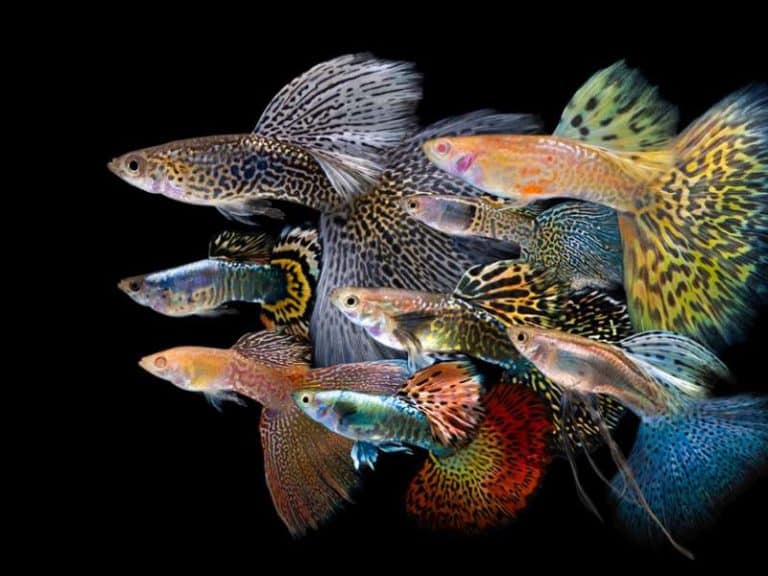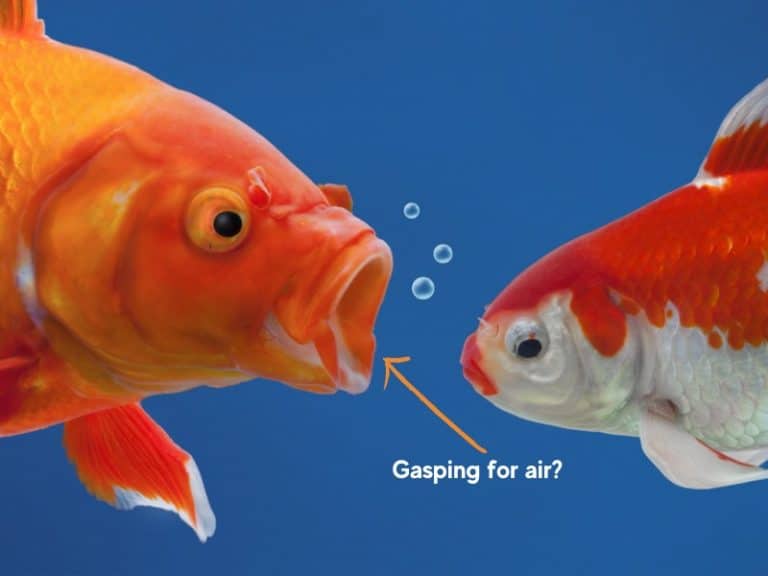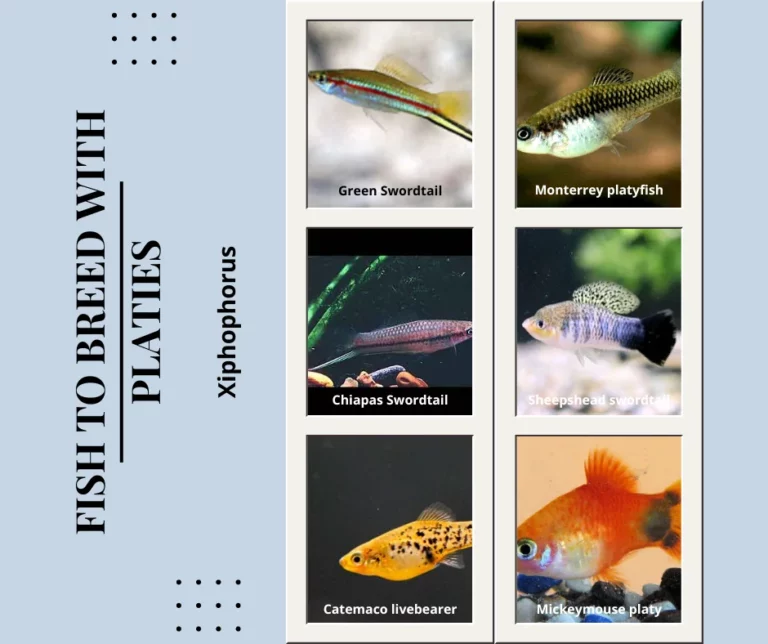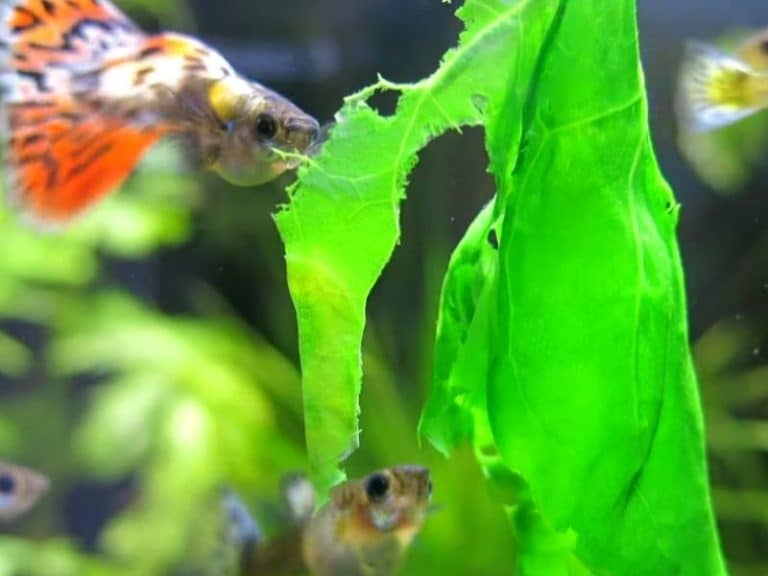A guppy fish is a highly active breeder. In the short lifespan of 2-3 years, a female fish can deliver over 1,900 guppy babies. However, now and then, you may encounter the issue of a pregnant fish not giving birth after the end of its gestation period.
The period, which is how long pregnant guppy fish take to give birth, usually lasts 21 to 30 days. If a guppy is not giving birth after that period, isolate it or remove anything stressing it in the tank. Then ensure it is well-fed and no diseases or infections are affecting it.
Internal or external factors can delay the delivery of baby guppies. In the worst scenario, the death of a pregnant guppy will terminate its pregnancy and prevent birth. An expectant guppy that is not normal may be bleeding, appear troubled, have injuries and wounds, and be inactive most of the time.
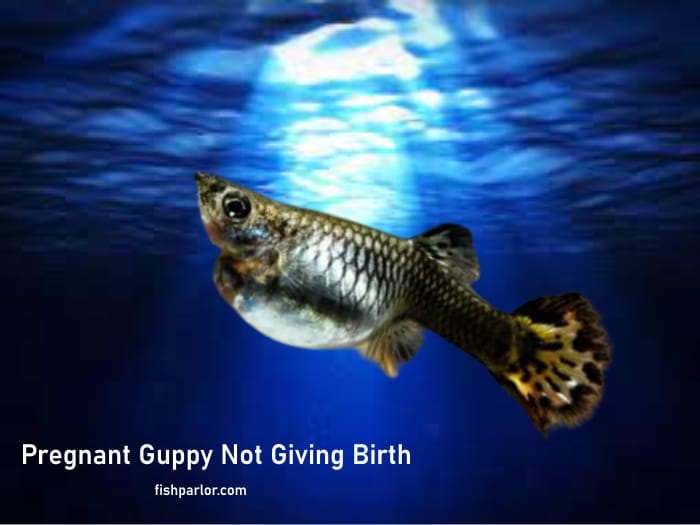
Causes: Why a pregnant guppy is not giving birth
Consequently, below are a few reasons a pregnant guppy may be experiencing delays in conceiving.
1. Lack of enough food
When there is a food shortage in the tank, a fry-carrying guppy takes longer to deliver. That allows the fry to remain alive and thrive in an environment without enough food. Since there is a delivery delay, guppy babies are more mature by the time they are born.
2. A cold tank environment
Guppies prefer a temperature range of 74-82 °F to give birth within the expected date. But you can shorten the baby-carrying duration by a couple of days. Put your fish in the warmer water, 77 to 80 °F.
Reducing the favorable temperature for guppies by a few degrees will delay the growth and development rate of the fish. Consequently, the gestation duration becomes slightly longer, and fewer guppy babies are born.
3. The baby-carrying period has not ended
A guppy pregnancy lasts from about 21 to 31 days. Averagely, a guppy gestates for 22-26 days. So, a baby-carrying guppy may not be giving birth because the pregnancy has not matured. You may be expecting a guppy to deliver during late egg fertilization.
4. Stress
The causes of stress in guppies are inadequate food, pathetic water conditions, an unhealthy diet, and aggressive tank friends. A worried guppy will delay giving birth. Even worse, a stressed guppy can refuse to give birth.
5. Presence of aggressive and bully tank mates
Guppies show no parental care and often consume their babies. So, instantly separate the fry or babies from their mothers and other mates in the tank after birth.
6. Illness
Pregnancy brings a lot of pressure on female guppy fish. Because a baby-carrying guppy is worried and stressed, the body is prone to attack by diseases. This is one of the main reasons why pregnant guppies keep dying in most cases.
It can be challenging to differentiate between an ill, expectant guppy fish and a pregnant one. Often the signs and symptoms appear alike. For instance, an unwell or pregnant guppy likes to stay inactive and seems tired.
However, there are signs specifically for a sick guppy. These include pale color, white patches on the body, red streaks on gills, wounds, injuries, and unsteady movement. Bleeding gills are often a result of ammonia poisoning.
7. No pregnancy
A reliable sign of identifying a pregnant guppy is an expanding size and belly due to fry growth and development. But, a female guppy’s belly can expand for other reasons besides pregnancy. Constipation, dropsy, or excess eating can contribute to a swollen belly.
Dropsy is an old term referring to the swelling of tissues in the belly due to excess accumulation of fluids and water. The condition is difficult to treat and can tragically harm your guppy’s organs.
Since the swollen belly may not reliably indicate a pregnancy, learn to identify reliable signs and symptoms. For example, a pregnant guppy fish’s gravid spot gets darker and more sizeable. The gravid spot is a triangular and dark patch bordering the anal fin of a guppy.
How to make guppy give birth faster
You can make guppy give birth faster by providing a warmer environment. Set the temperature to nearly 77 to 79 °F. If the pregnancy typically lasts about 28 days, warmer water will give your aquatic pet birth a few days earlier.
Also, provide your pregnant guppy with high protein-rich food. A diet of live brine shrimp, larvae of mosquitoes, iced bloodworms, and sewage worms (tubifex worms) can make a guppy give birth faster.
Can a guppy’s diet affect the time it will give birth?
A guppy’s diet can affect the time it will give birth. In the wild, the diet of a guppy fish consists of plant and animal matter. In your tank, though, pregnant guppies depend on the diet you provide. Most aquarists offer commercially popular feed. Flakes and pellets may not have the correct quantity of essential nutrients for a healthy, safe pregnancy.
A pregnant guppy needs to eat a healthy diet of proteins, vitamins, minerals, carbohydrates, and fats for excellent health and general well-being. If a guppy is not getting a balanced diet, it will not be healthy, leading to delays in giving birth. A poor diet will delay eggs’ fertilization and guppies’ formation inside the belly.
Do not overfeed your baby carrying guppy so that it does not suffer from issues like constipation and bloating.
How to help a pregnant guppy give birth
Help a pregnant guppy give birth by ensuring it has the best possible environment for living in the following ways.
1. Provide excellent water parameters in your tank
The water pH, hardness, and temperature should be favorable for a pregnancy to last the expected period. Also, toxic gasses like ammonia and nitrite must not be dangerous for your fry-carrying fish.
2. Feed your pregnant guppy a healthy diet
A pregnant guppy requires a diet of proteins, including minerals and vitamins like sodium and iron. A healthy diet keeps the normal functioning of the body of a guppy to deliver able-bodied fry. Feed your guppies at least five times daily while ensuring no overfeeding.
3. Protect your pregnant guppies
Protect your aquatic pet from diseases and infections like white spots and fin rot. Administer treatment right away if there is an illness.
4. Keep your pregnant fish away from dangerous tank company
Avoid exposing your child-carrying guppy to tank mates that are bullies, which cause stress, illness, and death.
How to know a pregnant guppy is not normal
A pregnant guppy is not normal when it experiences delays in giving birth. In addition, an expectant guppy that is not normal may also have signs of injuries or infections on the body. Aggressive tank mates are often the source of injuries seen in other guppies. Illnesses can result from poor water parameters.
Ensure you can pinpoint the contrast between a normal guppy expecting fry and a pregnant guppy with other issues. Spotting the difference enables you not to assume what is affecting your guppy. Pregnancy and disease signs may appear the same. So, it is easier to think that a guppy is only pregnant while it also has health issues.
In conclusion, guppies breed, get pregnant, and give birth frequently if favorable water conditions exist. It is uncommon for a pregnant guppy not to give birth or take a long time before giving birth. Contact a local fish vet if worried about the health of your fry-carrying guppy, especially if it is taking longer to give birth.
Additionally, a male guppy with a big belly can sometimes make one think it s a female not giving birth. Learn to know the difference between a male and a female guppy, plus how to tell if a guppy is pregnant so that you do not confuse why they are not giving birth.
References: Research was done thanks to Brown University: Guppies extending gestation period and Academia.edu: Breeding biology of guppy fish

